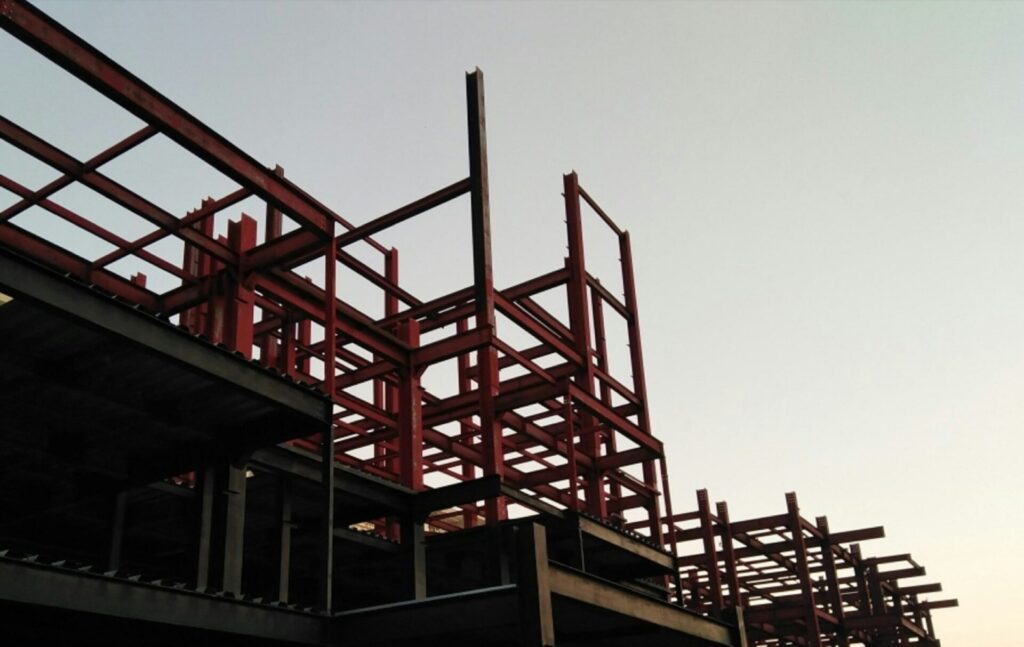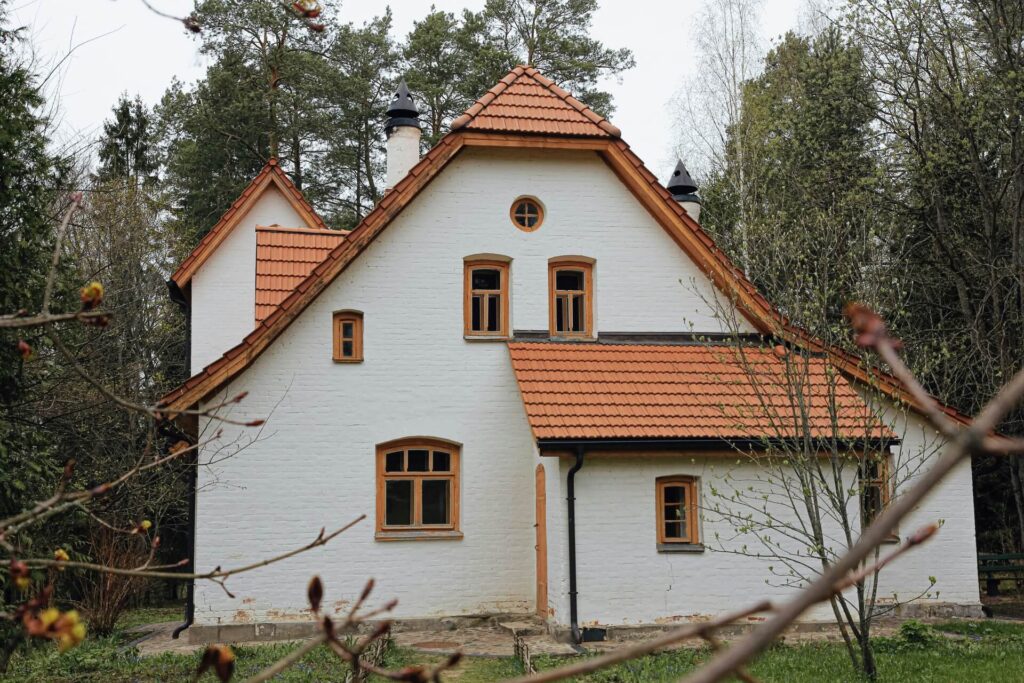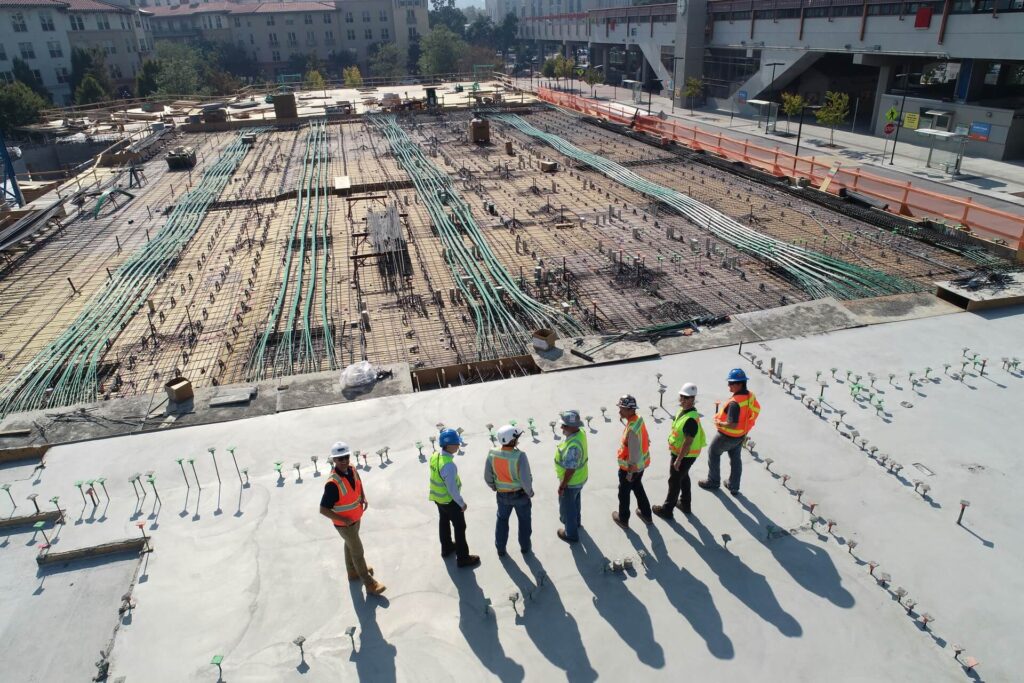How Much Does It Cost to Start a Construction Company? (Updated for 2025)

We are reader-supported. When you buy through links on our site, we may earn an affiliate commission.
You probably have many questions if you’re considering starting a construction company. How much does it cost to start a construction company?
What initial expenses do you need to cover? How quickly can your company become profitable?
Here are all the costs you must cover when starting your construction business in a post-COVID world.
Average Cost to Start a Construction Company
There is no set amount to start your own construction company. Different factors like your creditworthiness and the investment you’d like to initiate for tools, equipment and staff determine your loan amount. If you require vehicles and expensive equipment or have to pay for staff training, you may need a larger loan. However, the average small business loan size in the U.S. is $443,097, which may be substantially more than you want to or can get in credit.
Once you’ve calculated the cost of equipment, transportation and salaries — until you start making money — you’ll have a better idea of what your construction company’s funding requirements are.
The United States construction industry will likely reach $2,2 trillion by 2027, indicating how lucrative it is for new business owners. The industry is growing despite a less-than-ideal economy. So take heart: your private business has excellent profit potential!
Initial Expenses
There are five primary costs involved in starting a construction company that you should evaluate first:
1. Registration
The first step of any business venture is registering your company’s name, employee ID numbers, structure and other details. The registration process differs by state, so ensure you read up on your state’s registration requirements.
You should choose your business structure based on the best tax breaks and liability protection. Sole proprietorships or limited liability corporations (LLC) are usually – but not always – the best option for construction start-ups. Most states accept LLCs with only one incorporated member, making it a great choice for a one-man venture as your business is seen as separate from your private responsibilities. You can always hire subcontractors instead of staff for larger projects. Once you have your name, structure and ID number, you can acquire the necessary licenses.
2. Licenses
Construction companies need many licenses to stage projects at certain locations, use particular equipment and build specific structures. Again, these licenses will vary by state. There are two main licenses that every construction company needs:
- Contractor’s License: This license’s requirements depend on the types of structures you build and their dollar value. You’ll need an specialized contractor’s license to do projects that include electrical, water, sewage, gas and hazardous waste treatment.
- Business License: Your local municipality determines the cost and scope of your business license. It can cost a few hundred dollars in the most competitive areas. You have to renew this license every year to remain a valid business.
Many new business owners get held up during the licensing process because they do not know all the requirements. Take your time while researching your state and local licensing rules. Remember that you may also have to apply for a site license, which includes inspections and compliances.
3. Insurance
Construction is a dangerous business, accounting for one out of every five fatalities in private industries in the United States. Every company needs a comprehensive insurance plan to protect its livelihood and employees. These are the types of insurance you’ll need:
- General Liability
- Property
- Vehicle
- Builder’s Risk
- Worker’s Compensation
Your state might also require you to get disability and unemployment insurance. You’ve probably noticed by now that location plays a massive role in the value and structure of a construction company. Such precautions are necessary when engaging in a high-risk business.
4. Equipment
Your selection of tools and vehicles can make or break your company’s success early on. It will be your most expensive initial investment by far.
You may have to purchase used equipment to minimize costs, but that’s okay. Buying used equipment also puts you ahead of the depreciation curve because the first owner paid the initial costs, and you only cover the cost per hour once the reduced capital fee has been paid.
5. Employees
Hiring and paying employees is the most straightforward initial expense on paper but also the most unpredictable. You may need to employ full-time staff or hire independent contractors for specific projects. With this comes safety inspections and ensuring every member of your team is qualified and authorized to be on site.
Full-time staff will make the jobsites more efficient and fun, but contractors are generally cheaper to hire and have flexible hours. You will at least need a handful of full-time employees to help with paperwork, finding projects, ordering materials and other management tasks. Ensure you register all employees with the occupational safety and health administration (OSHA) to access safety training and support.
Additional Financial Considerations
In addition to the essential startup costs, there are other vital financial aspects to consider when launching a construction company:
Marketing and Advertising Costs
When launching a construction company, allocating resources for marketing and advertising is essential. Businesses typically allocate approximately 7-10% of their total revenue to their marketing efforts.
This serves as a general guideline or rule of thumb in the industry. These costs encompass various elements, including:
- Website development: Building a professional website is crucial for showcasing your services and projects. Costs may involve registration, hosting, web design and ongoing maintenance. Use this time to also claim and manage your free Google my business profile, which is how many clients find you when searching for your business name or for “construction company near me” search phrases.
- Online advertising: Consider expenses related to advertising campaigns, such as pay-per-click (PPC) advertising, search engine optimization (SEO) and social media advertising to reach a broader audience.
- Print materials: This includes designing and printing business cards, brochures, flyers and other promotional materials for networking and in-person marketing.
- Branding: Developing a strong brand identity, including logo design and company colors is an investment in long-term recognition and trust within the industry.
- Marketing strategies: Budget to make strategies that align with your target audience. These strategies may involve content marketing, email marketing and event participation.
- Advertising platforms: Costs for listing your services on construction-related websites, directories and publications to increase visibility.
By budgeting for marketing and advertising costs, your construction company can effectively promote its services and attract clients, which is crucial for growth and success in the industry.
Emergency Funds and Contingencies
Construction is unpredictable. Having money set aside for delays, unexpected expenses, equipment breakdowns, legal issues and slow economic times helps keep the business stable during challenging moments. Consider professional insurance to cover times when work is slow or in case equipment failure leaves you behind schedule.
Technology and Software
Using modern tools like project management software, accounting systems, good communication tech, 3D planning software, drones for surveys and safety tech can ensure work runs smoother and safer. These tools improve how projects are managed, financed and ensure better safety for everyone involved.
Funding Your Company
If you don’t have at least your initial investment saved up, it’s in your best interest to acquire a Small Business Administration (SBA) loan. SBAs are more challenging than other loans to qualify for, but the results are worth it.
They have low interest rates, flexible terms and generous loan amounts. Here are a few common SBA structures:
- SBA 7(a): Offers $500,001 to $5 million loans to cover existing debts, build more working capital or upgrade the project management system.
- SBA Microloan: Provides loans of $50,000 or less to help start-ups make periodic expansions to their business. These loans are also guaranteed up to 85% for amounts up to $150,000.
- SBA CDC/504: Loans up to $5.5 million to help businesses buy significant assets, such as new equipment or more real estate.
Consider getting a business line of credit. It won’t provide the exact loan amounts as an SBA, but it offers more flexibility. Every startup needs a flexible loan program. It benefits your business when you have business line credit as it increases your business creditworthiness.
Strategic Roundup for a Construction Company From A to B
It’s quite a lot to process when you’ve never been in business before, and most likely, you only think of how you enjoy building and fixing things. It’s your dream to do that for others while making a fair but lucrative living.
To simplify things, these steps will help you move from dream to reality:
1. Start by Researching the Construction Industry
With so many specialties in construction, you may wonder where to start. Begin by researching local construction companies. Make notes of their services, how they advertise, what they fall short on and how they excel.
2. Create Your Own Business Plan
You don’t need an MBA to draw up a business plan. You can begin with a vision board and some mind maps to put your thoughts onto paper. Then write a company mission statement, which is basically what your company will be about and where you see it in five years.
Outline the services you intend to provide based on your own skills set. Complete these points to ensure you have sufficient documentation to approach the SBA or a credit lender for consideration when applying for a business loan:
- Market analysis: Is there space for this particular company in your area? If there are already 50 plumbers in a small town, you’re not going to make a dent as plumber number 51. Find the market gap and shoot for it.
- Marketing strategy: How will you get people to know about your business? What do you need to promote it on community groups? Should you consider offering a few free jobs to large businesses in exchange for premium marketing in the form of business boards?
- Financials: Determine what are the basic tools and equipment you may need for the first few projects. Get costs if you have to hire specific equipment. Create a few project mockups to ensure you know how to quote your clients. These figures will also help you determine your startup fees.
- Budget: Finalize how much money you need to run your business for the first six months and then for a year, considering whether you have clients or not.
3. Register Your Business
Approach this with your financing consultants or bank as they may advise you about certain legalities you don’t know about.
4. Get the Licences and Permits
Ensure you are fully licenced before you start advertising. Your local counsel or municipal offices can help you their requirements, and it’s also good business practice to swing by the inspector’s offices and introduce yourself. They often have great advice to share that can save you on costs in the long run.
5. Funding and Insurance
Finalize your business loan and set up business insurance and workers compensation registrations if you are hiring full time staff. If you intend working with independent contractors create a checklist for how you will approve them and have some numbers handy. Remember that your clients pay the cost of materials, which you will often request from their home builder’s bond at preset stages from the bank.
6. Begin Marketing
It’s time to shout it from the rooftops. Your business is open and you’re ready for clients. Push hard on marketing on several different fronts, but be patient as it may take some time to create a name for yourself.
Start Your Construction Company With Confidence
So, how much does it cost to start a construction company? The average cost might give you a good benchmark, but you can’t fixate on that number. Every startup has a unique situation with a wide range of variables.
You should start your construction company with confidence. Although the economy might not be looking up, the construction industry has remained resilient and continues to grow.
[Original Publish Date 11/09/2022 — Updated 2/21/25]







